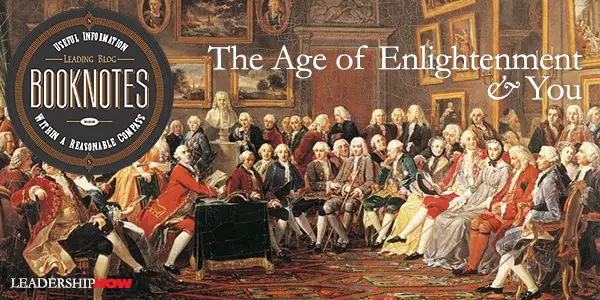 |
 |
11.25.14

The Age of Enlightenment and You
☙ Enlightenment remains the most powerful tool for challenging authority and liberating the human mind, an inspiration to leaders and followers worldwide, a method for effective change, and a framework of values by which that change can be measured. ☙ No single idea of the Enlightenment was so laden and sweeping as this. If people could transform their minds, they could change their lives, and together with others they could change their communities and beyond. ☙ Thomas Jefferson’s Declaration of Independence was less a guide to committed leadership than a resounding statement of Enlightenment ideals that had served its purpose of uniting Americans for war. ☙ Thomas Paine’s Common Sense expressed an aspiration that lay at the heart of the Enlightenment, the dream of revolutionaries everywhere, that the people “have in our power to begin the world over again.” ☙ No one had a greater role in fashioning the American experiment, basing the government on Enlightenment principle and then testing them in action than James Madison. ☙ Pursuing private interests, untethered to the thick social structure of old aristocracies, lacking deep familial roots, free of tradition and inherited beliefs, constantly on the move, democratic man, in Tocqueville’s portrait was profoundly alone. Lacking them, people would be crushed under the hypertrophy of selfhood; they would suffer the full consequences of the liberal society that made the isolated self the measure of all things personal and political and the market economy that made money the measure of all things economic and social. ☙ For Enlightenment pioneers, it meant embracing mankind as the measure of all things—not authority, not custom, not faith, but individual perception and reason were the foundation of truth. 
Posted by Michael McKinney at 08:58 AM
|
BUILD YOUR KNOWLEDGE
 

How to Do Your Start-Up Right STRAIGHT TALK FOR START-UPS 
Grow Your Leadership Skills NEW AND UPCOMING LEADERSHIP BOOKS 
Leadership Minute BITE-SIZE CONCEPTS YOU CAN CHEW ON 
Classic Leadership Books BOOKS TO READ BEFORE YOU LEAD |